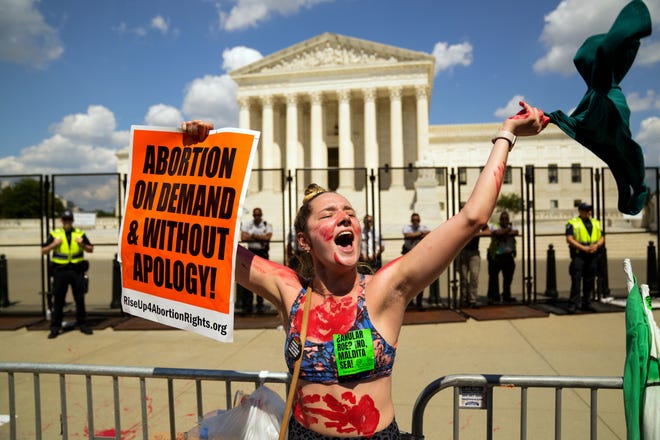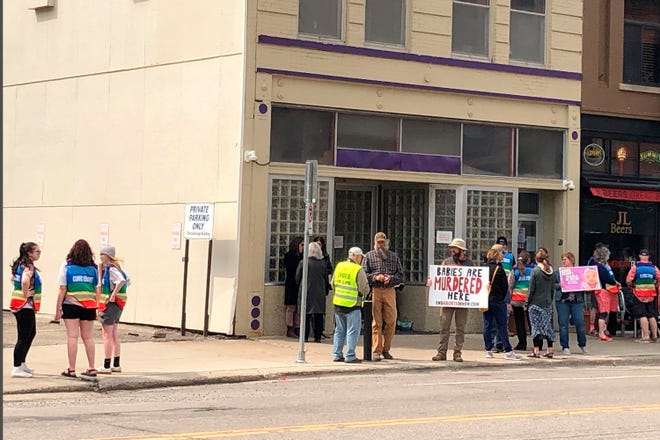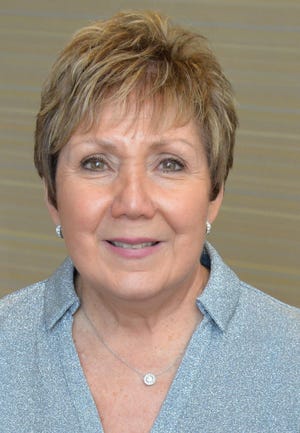When Andrea Gallegos arrived Friday at the Alamo Women’s Reproductive Services clinic in San Antonio, Texas, 25 patients were scheduled for abortion services. Then the U.S. Supreme Court’s decision to strike down the constitutional right to abortion brought the clinic’s work to a grinding halt.
Gallegos and her father, a physician at the center, had to break the news to patients who had traveled from across the state and neighboring Oklahoma: The clinic had to stop providing abortions.
The waiting room erupted with screams and cries. One patient angrily insisted on getting abortion care, unable to accept the high court’s ruling. Nearby sat another patient, a 13-year-old girl.
“It was completely devastating,” Gallegos, who works as an executive administrator at an affiliated clinic in Tulsa, Oklahoma, told USA TODAY Saturday. “You feel really helpless. These services are safe and easy, and we have physicians qualified to offer this care. So being forced to turn people down is heartbreaking.”
What does overturning Roe mean?:A breakdown of the Supreme Court’s abortion ruling
What to know Saturday:Supreme Court overturning Roe sparks rapid law changes, confusion and uncertainty in US
Supreme Court justices are distanced from patients in crisis, she added. “They don’t have to hold their hands or literally hold them up when they’re experiencing this utter despair.”
The court’s decision to overturn Roe v. Wade, which established a constitutional right to abortion 49 years ago, triggered abortion bans that are set to take effect over the next few weeks in 13 states. Clinics in Texas stopped providing services Friday after the state’s attorney general said pre-Roe abortion bans could already be in effect.
Abortion-rights advocates say effects of the seismic decision will ripple for generations as Americans, for the first time in five decades, lose their constitutional right to terminate a pregnancy. Patients in clinic waiting rooms, anticipating such procedures, were hit hard by the first wave.
“I won’t forget the faces in the room,” Gallegos said. “I won’t forget their cries and shrieks of despair. I won’t forget the look on my father’s face … of defeat. Those moments will stay with me for a long time.”
Other providers also shut down abortion services Friday in places subject to trigger bans, with heavy-hearted staff members calling hundreds of patients to cancel appointments.
“I don’t think it’s possible to overstate the damage this will cause in the lives of millions of people and for generations to come,” Amy Hagstrom Miller, president and CEO of Whole Woman’s Health, said at a press conference Friday. The organization stopped providing abortions in Texas Friday and had to call its patients, but its clinics in Virginia, Maryland and Minnesota remain open for those seeking such care.
Staff members at the Red River Women’s Clinic in Fargo, North Dakota, were shocked and saddened by the Roe decision, but they had little time to lament, according to Politico. There was work to do at the state’s lone abortion clinic, which will continue to provide the service until a trigger ban takes effect.
“Right after Roe v. Wade was overturned, I got a call from a woman wanting an abortion. She just moved to the area and has a small infant,” clinic director and owner Tammi Kromenaker told Politico. “I got the most debilitating news ever and then a patient called. This is why we do it.”
Protests and celebrations on Saturday:People take to the streets across the nation after Supreme Court’s abortion ruling
For Michelle Trupiano, an advocate for legal, safe reproductive health care, Friday began with a promising roundtable discussion on how to bolster abortion access in Missouri, a state with just one clinic. Health and Human Services Secretary Xavier Becerra and U.S. Rep. Cori Bush were among the high-profile figures attending.
The event took a turn as it ended, with participants learning of the court’s decision on their phones. People glanced at each other in shock; a hush fell over the room. It felt surreal, said Trupiano, director of the Missouri Family Health Council.
Trupiano said she was grateful to be around other advocates and providers as they consoled each other, hugged and cried.
“I can’t imagine how heartbreaking it is to know you have the ability to take care of people yet politicians are telling you that you can’t,” she said.
In states where abortion remains available, the court’s decision hit just as hard.
Renee Chelian, who operates three Northland Family Planning Center clinics in the Detroit area, was putting on makeup when the news popped up on her phone. It stopped her in her tracks, just as she was about to head out to the clinics to pick up signature sheets for a ballot initiative that would protect abortion and other reproductive rights in Michigan.
She expected Roe to be overturned, something that many believed would happen after a draft court opinion leaked last month, but that provided little buffer against the reality of the decision.
“It felt like when someone is sick and you know they’re going to die and you think you’re prepared. And then they die and you’re not really prepared, said Chelian, who has worked to provide abortion services for 50 years after having a pre-Roe abortion as a teenager in 1966.
Her phone quickly blew up with texts, emails and calls. But Chelian had to shift the focus from grief to duty, calling her clinics to tell staff that Northland would remain open for abortion services.
The procedures remain legal in Michigan but that could change if a temporary injunction is lifted or removed that currently blocks enforcement of a 1931 state law that criminalizes abortion.
It wasn’t long before Chelian started hearing from providers in nearby Ohio and faraway Texas seeking appointments for their clients.
“There was a point where after crying for an hour (with) the people who are closest to me in the clinic, I had to stop crying and pull on the warrior mentality because I needed to be strong for everybody else,” she said.
After tossing and turning Friday night, the 71-year-old was back at work Saturday wearing a “1973” t-shirt, noting the year of the Roe decision, Wonder Woman earrings and a bracelet emblazoned with the words “f—ing warrior.” She dropped off the ballot-initiative signatures Saturday and planned to speak at a rally to support the measure.
“I want to win in November and feel like before I die, Michigan is protected,” she said.




